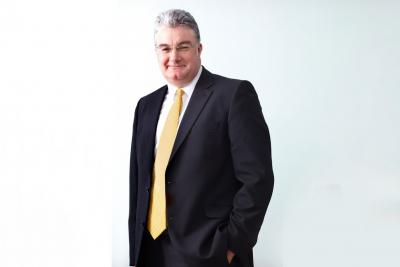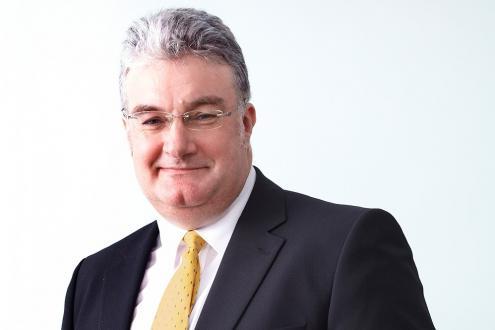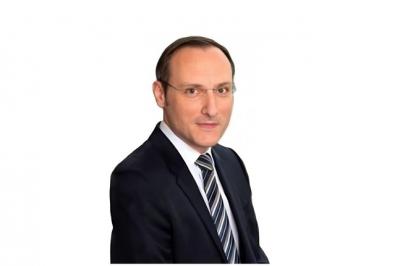The evolution of demand for ETFs in Asia is well documented, but how has this rising interest been affected by the weakness in mainstream markets in 2022? Are investors using ETFs more or less? And how, for longer-term holds or short-term trading? Or are they perhaps shifting their attention to actively managed funds in face of current global financial and geopolitical headwinds? Paul Gambles, Director at the Bangkok-headquartered and long-established MBMG Group, offered his views to delegates attending the virtual Hubbis discussion on June 23 that focused on ETFs and the Asian private client. We have summarised some of his valuable insights in this short report.
Gambles opened his commentary by remarking that there had been noteworthy evolution in the design and the distribution of ETFs that have significant implications for how they are used. “Historically, these were purely index funds, but nowadays people are increasingly using ETFs in portfolios to replicate any beta, and in some cases, some alpha as well,” he explained. “In other words, the application of ETFs is far broader now than ever before, and that's been a key factor in the increasing use of ETFs over the last 10-15 years or so.”
Gambles added that one of the compelling appeals had always been the cost. “When you are looking at the lower alpha elements of the portfolio, fees are a really crucial factor in beta capture, meaning that the lower the fees, the easier it is to justify using ETFs. Our advisory portfolios tend to be typically around 30% to 50% in hedge funds, and most of the balance tends to be in ETFs, because they are generally the most cost-effective way to go and capture those areas that are not mainly driven by alpha.”
PG’s Tips
Gambles expanded further on this, noting that being able to conduct index-based trading, and to put in limit sells and limit buys, had been a major advantage for MBMG over the last few years. “Anytime there's volatility, you want to be able to get in, get out at certain points, and with ETFs, obviously, you can set limits, whereas with daily traded funds, you can't,” he explained. “We cannot monitor the markets around the world 24 hours a day, so it is ideal to have open limit sells, and limit buys in the ETF universe.”
He also noted the importance of ETFs for delivering thematic investment ideas. “We should really take our hats off to the indices compilers,” he said.
“Why? Because the rise of ETFs is also linked to the rise of numerous different indices, including very specialist indices within different sectors, factors, and sub-sectors. As an asset selector who has been critical of selector dependency on benchmarks even we find that the ever-increasing array of benchmarks against which to measure performance really helps us.”
Defining and refining the portfolios
He said that thematics are all about finding something interesting you want to invest in it, and then investing. “The easiest way to find out what it should be returning is to find some historic measurement,” he elucidated, “and the best independent way of doing that is often a benchmark. Having a thematic ETF, and being able to monitor that against the benchmark, makes the job so much easier.”
And that is why, he reported, for the first time in his career, he had been able to invest via ETFs in areas such as wheat, crude oil and other areas that had become more interesting as a result of the Russian special operation in Ukraine.
Welcoming the rise in diversity
“ETFs to tap into these segments would not have been available a few years ago, so we owe a lot to the ETF industry, which in turn owes a lot to the indices industry. Add to that the trading charges for buying and selling ETFs have come down so much – in fact, some private banks we deal with offer zero fee trading on ETFs – that accessing and trading these specialist exposures is increasingly attractive.”
He said that amongst other more obvious thematics, ETFs also generate increasingly interesting opportunities within the world of fixed income. “For example, you can obtain fantastic US Treasuries exposure through ETFs, such as through PIMCO to a 25-year plus zero-coupon treasury strip, resulting in about 1.6 times the beta of a 25-year treasury. And actually, as an aside, I would rather like to put a lot of my personal investments into those right now, because I do not believe that interest rates are going to be higher than this in a few years’ time. They may be higher in a few months’ time, but I do not think they are going to be higher in a few years’ time. In short, they are a fantastic play.”
Freedom of expression
He added that ETFs had also emerged in recent years that offered access to key trends. For example, MBMG had done well in an ETF that is long on E-commerce and short on the traditional retail sector. “We bought in a few years ago and it did incredibly well, and we sold out, and we keep our eyes on it as a major long-term theme. The Amazons of this world are more likely over time to outperform the supermarkets and hypermarkets.”
The fact that ETFs have grown the way that they have over the last 10 to 15 years is a sign that that the wealth industry as it has been, is being challenged. People used to say ETFs would never work because advisors could not make enough from them, he observed. “But now look at the volumes and look at the transparency of fees and their low levels,” he said. “If you do so, it is possible to extrapolate that the wealth industry is actually shifting towards a different model where fees are more transparent, where there are fewer and fewer retrocessions, and where clients will gradually pay for advice, so the advisors are fully aligned with their clients’ real goals. At that has been the MBMG model and our vision since inception.
The MBMG Success Story
Paul Gambles has been a stalwart of Thailand’s wealth management scene for some 28 years, having first arrived in Bangkok in 1994. Not only have he and his wife – who arrived with him all those years ago - raised their family there, but he has also built the MBMG Group into perhaps the largest and best-known multidisciplinary financial practice in the country, which includes leading independent asset management and advisory business MBMG Investment Advisory.
His founding partner, Graham Macdonald, retired in 2016, but Gambles continues today, running a team of six in the Investment Advisory team, with Assets Under Advice equivalent to USD1.5 billion at MBMG Investment Advisory.
Paul and his team curate investments and advice for MBMG’s roster of over thirty private clients, institutions, and family offices, which are their main focus.
He says he still passionately believes in the firm’s original concept of a fee-driven advisory model that embraces transparency, rather than the embedded fee model still widely practised in the world of private banking. He says that his first duty is to protect clients’ wealth, and this approach is especially vital at times like these when global risks are at their highest since the 1970s, and certainly higher than the rather troubled 1980s.
MBMG Investment Advisory is the Thailand SEC-licensed fee-based wealth division of MBMG Group, which has, over the past nearly three decades, become a well-diversified financial services provider, and since 2015 a member of the GGI Group, the sixth-largest global professional services group. Paul himself is licensed by the SEC as both a Securities Fundamental Investment Analyst and an Investment Planner. The firm operates out of Bangkok and also has an office in the upmarket royal seaside resort of Hua Hin.
MBMG Group today provides legal, accounting and audit services, corporate advisory, insurance brokerage, and Gambles concentrates his time mostly as director and investment advisor with MBMG Investments. They also have financial planning licenses, so they frame the investment allocation decisions to align with broader issues like tax planning, lifestyle planning, and retirement planning.

Director at MBMG Group

More from Paul Gambles, MBMG Group
Latest Articles






